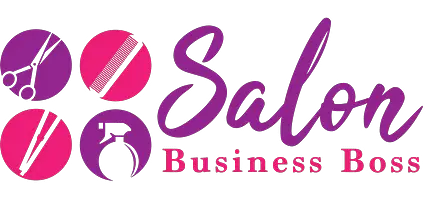Starting a small salon business can be an exciting venture for individuals passionate about beauty and wellness. Whether you dream of becoming a hairstylist, nail technician, or esthetician, establishing a successful salon requires careful planning, dedication, and adherence to legal requirements.
To start a small salon business, define your concept, research the market, and create a solid business plan. Obtain necessary licenses and registrations, secure funding, and find a strategic location. Build a talented team, offer quality services, and market your salon effectively for success.
Define Your Salon Concept
The success of a salon business hinges on a well-defined concept that aligns with your passion and resonates with your target audience. Begin by deciding on the services you intend to offer. Will you specialize in haircuts, hairstyling, coloring, manicures, pedicures, facials, waxing, or a combination of these? Understanding the range of services you want to provide will be the cornerstone of your salon’s identity.
Next, identifying your niche is essential. Consider what sets your salon apart from others in the market. It could be a focus on eco-friendly products, catering to a specific age group, or offering unique and innovative services. By defining your niche, you can target a specific segment of customers and tailor your offerings to meet their needs and preferences.
As you outline your salon concept, think about the ambiance and atmosphere you want to create. The decor, lighting, and overall aesthetics should reflect the essence of your brand and resonate with your target audience. A well-designed and cohesive concept can leave a lasting impression on clients and encourage them to return for future visits.
Conduct Market Research
Market research is the foundation upon which you build a successful salon business. It involves gathering data on the demand for salon services in your local area and understanding your competition. Start by analyzing the demographics of the community you plan to serve. Consider factors such as age groups, income levels, and lifestyle preferences, as these will influence your service offerings and pricing.
Researching your competitors is crucial. Identify other salons in the vicinity and study their services, pricing, and customer reviews. This information will help you position your salon competitively and identify potential gaps in the market that you can exploit.
Understanding your target customer profiles will allow you to create marketing strategies that resonate with them. Tailor your promotions, advertising, and social media efforts to appeal to the preferences and interests of your intended clientele.
Create a Business Plan
A well-crafted business plan is essential for the success of your salon venture. Start by clearly defining your salon’s vision, mission, and long-term goals. The vision should depict the ultimate purpose and aspirations of your salon, while the mission outlines how you plan to achieve those objectives. Setting specific, measurable, achievable, relevant, and time-bound (SMART) goals will help guide your salon’s growth and development.
Incorporate financial projections into your business plan to provide a realistic view of your salon’s financial performance. This should include sales forecasts, projected expenses, and estimated profits. Understanding your startup costs and monthly operating expenses is crucial for budgeting and ensuring the salon’s financial sustainability.
Outline your marketing and promotional strategies in the business plan to attract a steady stream of clients. Specify your target audience, and describe how you plan to reach and engage them. Include details about advertising campaigns, social media presence, and any special offers or loyalty programs you intend to implement.
A comprehensive business plan serves as a roadmap, providing direction and clarity to you and potential investors. It demonstrates your dedication to the salon’s success and serves as a valuable tool when seeking financing from lenders or attracting potential partners.
Legal Structure and Registrations

Selecting the appropriate legal structure for your salon is a critical decision with significant implications for your liability and tax obligations. The most common options are sole proprietorship, partnership, limited liability company (LLC), and corporation.
A sole proprietorship is the simplest form and means you are personally liable for all the salon’s debts and obligations. A partnership involves two or more individuals sharing ownership and responsibility. An LLC provides personal liability protection, separating your personal assets from business debts. A corporation also provides liability protection and allows for the issuance of shares to raise capital.
Consult with a legal professional or business advisor to determine the most suitable legal structure based on your salon’s size, potential risk, and long-term goals.
Depending on your location, you may need specific licenses and registrations to operate legally. Visit your local municipal corporation or government office to inquire about obtaining necessary permits, such as a trade license and GST number. Additionally, if you plan to employ staff, a professional tax license may be required by the local tax authorities.
Complying with legal requirements ensures your salon operates smoothly and avoids potential legal issues that could hamper your business’s growth and reputation.
Read more about: 6 Advantages of Owning a Hair Salon
Secure Funding
Securing adequate funding is vital to turn your salon business idea into a reality. Begin by determining the initial capital required to cover startup costs, including salon equipment, supplies, furniture, and lease or renovation expenses. Factor in operating costs for at least the first few months until your salon starts generating revenue.
Evaluate your personal financial situation and consider contributing personal savings to the startup. If self-funding is insufficient, explore external funding options. Approach banks or financial institutions for small business loans. Prepare a comprehensive business proposal that includes your business plan, financial projections, and a repayment plan. A well-organized proposal enhances your chances of obtaining a loan.
Consider seeking financial support from family and friends. Present your business concept and potential return on investment to encourage their support.
Remember to create a detailed financial plan that outlines expected revenue, expenses, and cash flow projections for at least the first year of operation. Clear financial planning demonstrates to potential lenders and investors that you are serious about your salon business and have a realistic strategy for its success.
Find the Perfect Location
Selecting the right location is a crucial factor that can significantly impact the success of your salon. Look for areas with high foot traffic, such as shopping centers, malls, or busy streets, as these locations offer greater visibility and exposure to potential clients.
Consider the demographics of the area and whether it aligns with your target audience. For instance, if you aim to attract young professionals, a location near corporate offices or universities might be ideal.
Accessibility is equally important. Choose a location with ample parking or easy access to public transportation. A convenient location encourages customers to visit your salon regularly.
Evaluate the competition in the vicinity. While some competition can be healthy, an oversaturated market might make it challenging to establish a loyal customer base. Look for a location where you can fill a gap or offer unique services to stand out.
Remember that the perfect location may require negotiation with landlords or property owners. Assess lease terms and negotiate rent to ensure it aligns with your financial plan. Taking the time to find the ideal location will set the stage for a successful and thriving salon business.
Salon Setup and Interior Design
The ambiance and interior design of your salon play a significant role in shaping customers’ overall experience. A well-thought-out and inviting salon space creates a positive impression and fosters a sense of relaxation and comfort for clients. Begin by establishing a clear brand identity and theme that reflects your salon’s values and services.
Invest in high-quality salon furniture and equipment that not only looks appealing but also ensures client comfort and convenience during treatments. Comfortable seating and functional workstations contribute to a positive experience for both clients and staff.
Lighting is a crucial element in setting the right mood and ambiance. Opt for a mix of natural and artificial lighting to create a warm and welcoming atmosphere. Consider using accent lighting to highlight specific areas of the salon or showcase products.
Choose a color scheme that complements your brand and creates a harmonious environment. Colors can evoke certain emotions, so select hues that align with the salon’s theme and the services offered.
Add personalized touches to the decor, such as artwork, plants, or unique elements that resonate with your target audience. These touches contribute to a memorable and authentic salon experience.
Build a Talented Team
The success of your salon business heavily relies on the talent and expertise of your staff. Assemble a team of skilled and passionate professionals who align with your salon’s vision and commitment to exceptional service.
Start by conducting thorough interviews and carefully screening potential candidates. Look for individuals with relevant experience and qualifications in their respective fields, such as licensed hairstylists, estheticians, and nail technicians. Verify their credentials and check references to ensure their competence and professionalism.
Consider their personality and communication skills, as a friendly and approachable team can create a positive and welcoming atmosphere for clients.
Invest in ongoing training and professional development for your staff. Keeping them up-to-date with the latest trends and techniques ensures that your salon remains competitive and can offer cutting-edge services.
Encourage a positive and supportive work environment that fosters teamwork and mutual respect among your staff. Satisfied and motivated employees are more likely to provide exceptional service and contribute to a positive salon experience for clients.
Procure Quality Products and Supplies

The success of your salon business relies heavily on the quality of products and supplies you offer to your clients. Partner with reliable and reputable suppliers to ensure consistent and high-quality offerings. Quality products not only enhance the effectiveness of your services but also contribute to customer satisfaction and loyalty.
Conduct thorough research to identify suppliers known for their premium beauty products, salon equipment, and supplies. Consider factors such as product ingredients, safety standards, and environmental impact when selecting suppliers. Building strong relationships with trusted suppliers can lead to favorable terms, discounts, and exclusive access to new products.
Regularly assess and update your product offerings to stay ahead in the ever-evolving beauty industry. Stay attuned to customer feedback and industry trends to understand changing preferences and incorporate new and innovative products into your inventory.
Demonstrating a commitment to using and selling top-notch products establishes your salon as a trustworthy and reliable brand. Satisfied clients are more likely to recommend your salon to others, further contributing to business growth and success.
Read more about: How To Open a Successful Hair Salon
Marketing and Promotion
A well-executed marketing and promotion strategy is vital to attract new customers and build a loyal clientele. Launching a strategic marketing campaign increases your salon’s visibility and generates interest among your target audience.
Leverage the power of social media to reach a broader audience. Regularly post engaging content, showcasing your salon’s services, staff expertise, and customer transformations. Encourage clients to share their experiences and results, as word-of-mouth recommendations carry significant weight in the beauty industry.
Invest in local advertising, both online and offline, to reach potential customers in your immediate vicinity. Partner with local businesses and community events to expand your reach and build valuable partnerships.
Collaborating with influencers and bloggers can significantly impact your salon’s online presence. Reach out to local influencers who align with your brand and invite them for salon services. Their endorsement can attract their followers to your salon and potentially lead to long-term customers.
Offering special discounts and loyalty programs incentivizes repeat business and encourages client retention. Reward loyal customers with exclusive perks, such as discounted services or complimentary upgrades, to strengthen their bond with your salon.
Conclusion
Starting a small salon business requires careful planning, legal compliance, and a passion for providing excellent customer service. By defining your salon concept, conducting market research, and obtaining necessary licenses, you lay a strong foundation for success. Building a talented team, providing quality services, and implementing effective marketing strategies will help your salon thrive in a competitive industry. Remember that dedication, innovation, and adaptability are key to growing and sustaining a prosperous salon business. With the right approach and persistence, you can turn your dream of owning a successful salon into a reality.
Frequently Asked Questions

1. What are some common pitfalls to avoid when starting a salon?
Avoid underestimating startup costs, neglecting market research, and overlooking legal requirements. Also, keep a close eye on cash flow.
2. How do I create a salon pricing strategy?
Research competitor pricing and factor in your costs to set competitive yet profitable prices. Consider introductory offers to attract new clients.
3. How can I build customer loyalty?
Implement a loyalty program, offer referral incentives, and consistently provide exceptional services to keep customers coming back.
To learn more on how to start you own salon checkout my startup documents here.
Please note that the contents of this blog are for informational and entertainment purposes only and should not be construed as legal advice. Any action taken based on the information provided in this blog is solely at your own risk. Additionally, all images used in this blog are generated under the CC0 license of Creative Commons, which means they are free to use for any purpose without attribution.

About the author. Entrepreneur and Salon Business Fan.
Hi! I am Shawn and I am a happy individual who happens to be an entrepreneur. I have owned several types of businesses in my life from a coffee shop to an import and export business to an online review business plus a few more and now I create online salon business resources for those interested in starting new ventures. It’s demanding work but I love it. I do it for those passionate about their business and their goals. That’s why when I meet a salon business owner, I see myself. I know how hard the struggle is to retain clients, find good employees and keep the business growing all while trying to stay competitive.
That’s why I created Salon Business Boss: I want to help salon business owners like you build a thriving business that brings you endless joy and supports your ideal lifestyle.


